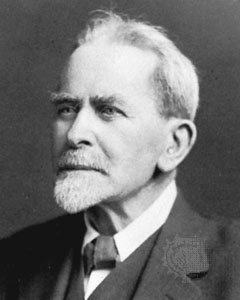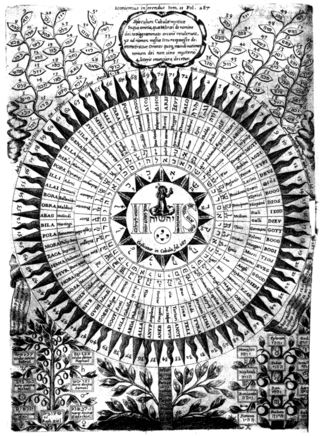Related Research Articles

In classical Greek mythology, Syrinx was a nymph and a follower of Artemis, known for her chastity.

Shaka kaSenzangakhona, also known as Shaka Zulu and Sigidi kaSenzangakhona, was the king of the Zulu Kingdom from 1816 to 1828. One of the most influential monarchs of the Zulu, he ordered wide-reaching reforms that re-organized the military into a formidable force.

Chalcedonian Christianity is a term referring to the branches of Christianity that accept and uphold theological resolutions of the Council of Chalcedon, the Fourth Ecumenical Council, held in 451. Chalcedonian Christianity accepts the Christological Definition of Chalcedon, a Christian doctrine concerning the union of two natures in one hypostasis of Jesus Christ, who is thus acknowledged as a single person (prosopon). Chalcedonian Christianity also accepts the Chalcedonian confirmation of the Niceno-Constantinopolitan Creed, thus acknowledging the commitment of Chalcedonism to Nicene Christianity.
Zulu traditional religion contains numerous deities commonly associated with animals or general classes of natural phenomena. Unkulunkulu is the highest god and is the creator of humanity. Unkulunkulu was created in Uhlanga, a huge swamp of reeds, before he came to Earth. Unkulunkulu is sometimes conflated with the sky god Umvelinqangi, god of thunder, earthquake whose other name is Unsondo, and is the son of Unkulunkulu, the Father, and Nomkhubulwane, the Mother. The word nomkhubulwane means the one who shapeshifts into any form of an animal. Another name given for the supreme being Unkulunkulu is uSomandla, the ultimate source of all existence.

Sir James George Frazer was a Scottish social anthropologist and folklorist influential in the early stages of the modern studies of mythology and comparative religion. His reputation was improved after his new wife in 1896, Lilly Frazer, decided that he was undervalued and that she would improve his impact.

There are various names of God, many of which enumerate the various qualities of a Supreme Being. The English word god is used by multiple religions as a noun to refer to different deities, or specifically to the Supreme Being, as denoted in English by the capitalized and uncapitalized terms God and god. Ancient cognate equivalents for the biblical Hebrew Elohim, one of the most common names of God in the Bible, include proto-Semitic El, biblical Aramaic Elah, and Arabic 'ilah. The personal or proper name for God in many of these languages may either be distinguished from such attributes, or homonymic. For example, in Judaism the tetragrammaton is sometimes related to the ancient Hebrew ehyeh. In the Hebrew Bible, YHWH, the personal name of God, is revealed directly to Moses. Correlation between various theories and interpretation of the name of "the one God", used to signify a monotheistic or ultimate Supreme Being from which all other divine attributes derive, has been a subject of ecumenical discourse between Eastern and Western scholars for over two centuries. In Christian theology the word is considered a personal and a proper name of God. On the other hand, the names of God in a different tradition are sometimes referred to by symbols. The question whether divine names used by different religions are equivalent has been raised and analyzed.

Babaaláwo or Babalawo in West Africa literally means "father of secrets" or "father of the mysteries" in the Yoruba language. It is a spiritual title that denotes a high priest of the Ifá oracle. Ifá is a divination system that represents the teachings of the Òrìṣà Ọrunmila, the Òrìṣà of Wisdom, who in turn serves as the oracular representative of Olodumare.

The Yoruba religion, or Isese, comprises the traditional religious and spiritual concepts and practice of the Yoruba people. Its homeland is in present-day Southwestern Nigeria, which comprises the majority of Oyo, Ogun, Osun, Ondo, Ekiti, Kwara and Lagos States, as well as parts of Kogi state and the adjoining parts of Benin and Togo, commonly known as Yorubaland. It shares some parallels with the Vodun practiced by the neighboring Fon and Ewe peoples to the west and to the religion of the Edo people and Igala people to the east. Yoruba religion is the basis for a number of religions in the New World, notably Santería, Umbanda, Trinidad Orisha, and Candomblé. Yoruba religious beliefs are part of Itàn (history), the total complex of songs, histories, stories, and other cultural concepts which make up the Yoruba society.
Unkulunkulu (/uɲɠulun'ɠulu/), often formatted as uNkulunkulu, is a mythical ancestor, mythical predecessor group, or Supreme Creator in the language of the Zulu people. Originally a "first ancestor" figure, Unkulunkulu morphed into a creator god figure with the spread of Christianity.
UMvelinqangi is a Nguni word which translates to "the Most High" or "Divine Consciousness"; that is considered the source of all that has been, that is and all that ever will be.

As polytheistic systems evolve, there is a tendency for one deity to achieve preeminence as king of the gods. This tendency can parallel the growth of hierarchical systems of political power in which a monarch eventually comes to assume ultimate authority for human affairs. Other gods come to serve in a Divine Council or pantheon; such subsidiary courtier-deities are usually linked by family ties from the union of a single husband or wife, or else from an androgynous divinity who is responsible for the creation.

The traditional beliefs and practices of African people are highly diverse beliefs that include various ethnic religions. Generally, these traditions are oral rather than scriptural and are passed down from one generation to another through folk tales, songs, and festivals, and include beliefs in spirits and higher and lower gods, sometimes including a supreme being, as well as the veneration of the dead, and use of magic and traditional African medicine. Most religions can be described as animistic with various polytheistic and pantheistic aspects. The role of humanity is generally seen as one of harmonizing nature with the supernatural.
Utixo or Tiqua was a god of the Khoi.
Jacob K. Olupona is a Nigerian American professor at the Harvard Divinity School with a joint appointment as Professor of African and African American Studies in the Faculty of Arts and Sciences at Harvard University.

Umhlanga[um̩ɬaːŋɡa], or Reed Dance ceremony, is an annual Swazi event. In Eswatini, tens of thousands of unmarried and childless Swazi girls and women travel from the various chiefdoms to the Ludzidzini Royal Village to participate in the eight-day event. The young, unmarried girls were placed in female age-regiments; girls who had fallen pregnant outside wedlock had their families fined a cow.
Myth is a folklore genre consisting of narratives that play a fundamental role in a society, such as foundational tales or origin myths. Since "myth" is popularly used to describe stories that are not objectively true, the identification of a narrative as a myth can be highly controversial. Many religious adherents believe that the narratives told in their respective religious traditions are historical without question, and so object to their identification as myths while labelling traditional narratives from other religions as such. Hence, some scholars may label all religious narratives as "myths" for practical reasons, such as to avoid depreciating any one tradition because cultures interpret each other differently relative to one another. Other scholars may abstain from using the term "myth" altogether for purposes of avoiding placing pejorative overtones on sacred narratives.

Bantu mythology is the system of beliefs and legends of the Bantu people of Africa. Although Bantu peoples account for several hundred different ethnic groups, there is a high degree of homogeneity in Bantu cultures and customs, just as in Bantu languages.
Adelekan Olubuse I was the 46th Ooni of Ife, a paramount traditional ruler of Ile Ife, the ancestral home of the Yorubas. He succeeded Ooni Derin Ologbenla and was succeeded by. Ooni Adekola.
Linda Sibiya is a retired South African radio DJ, entrepreneur and radio producer and television producer best known as a host on Ukhozi FM. Sibiya was born and raised in EShowe, North of KwaZulu-Natal. He made his acting debut in award-winning film Uhlanga the Mark.
References
- 1 2 Olupona, Jacob K. (2014). African Religions: A Very Short Introduction. Oxford: Oxford University Press. p. 10. ISBN 978-0-19-979058-6. OCLC 839396781.
- ↑ Leslie, David (1875). Among the Zulus and Amatongas: With Sketches of The Natives, Their Language and Customs; And The Country, Products, Climate, Wild Animals, &c. Being Principally Contributions To Magazines and Newspapers (2nd ed.). Edinburgh: Edmonston & Douglas. p. 149.